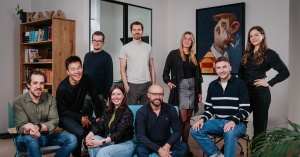It takes more than flawlessly executed technology for a business to thrive and become an outstanding opportunity for investors. The functionality of the product or the originality of the idea is an absolute must, but they are still not sufficient to meet the full scope of the investment criteria of potential angel and VC investors.
As a savvy investor, you need to look beyond the surface and consider key criteria that truly matter. Back in 2008, renowned Silicon Valley investor and startup evangelist Guy Kawasaki laid out the characteristics of an attractive and fundable startup deal in his blog post “The No-Bull-Shiitake Investor Wishlist.” According to Kawasaki, investors are seeking technology-based businesses that solve real customer problems and can generate profits on their own, thus turning into profitable market opportunities.
So, what are the factors that investors want to see from your business before they bet their money on your idea? To get an insider’s perspective on spotting a good startup investment opportunity, The Recursive spoke with Romanian venture capitalist investor Matei Dumitrescu and Michal Bas, Principal at the early-stage VC VentureFriends.
“Nowadays, good investment opportunities in the tech startup industry have some key factors to consider: a solid management team, innovative technology, and a growing market. The business model should be simple while having the potential for rapid growth and scalability,” Matei Dumitrescu shared for The Recursive.
“Investing in tech companies has undergone a seismic shift in recent months. The CEE region has not been spared. Nevertheless, the funding in the region remained strong (as opposed to other regions), still driven by other significant tailwinds,” Michal Bas adds.
In other words, investors are looking for businesses with a winning combination of a skilled management team, novel technology, and a market that’s poised for growth. Now let’s get more specific.
Founders who know how to invest the raised money
“Now, more than ever, the founders should be more prepared to use the funds received from investors. They do not receive the investment as a prize. They will enter a partnership, the investors will actually be their shareholders. Also, they should look at an investment more like a commercial deal with clear terms, deliverables, milestones,” Matei Dumitrescu highlights.
Founders who know how to effectively allocate the raised funds into their businesses can make a significant difference in the success and growth of the startup. These founders are savvy and strategic in their approach, leveraging the investment capital to drive the company forward and maximize its potential.
“Startups must demonstrate that they are capable of spending the money for a very clear purpose and moving forward in the promised direction. That’s one of the reasons I’m very keen on developing new acceleration programs, like Commons Accel for instance, to support startup teams with resources and know-how, as the money is still out there but you have to be ready to take them,” Matei Dumitrescu explains.
Search for capital efficiency
Another metric that can help investors spot a sweet startup investment opportunity is capital efficiency, which represents the founders’ ability to achieve growth and profitability while minimizing capital requirements.
“These days, investors are more heavily focusing on capital-efficient companies. They base their decision also on how much the company has achieved (in terms of product, team, and traction) given the amount of funding they’ve received so far. Based on this metric, a bootstrapped company will be preferable over a startup that has raised a round to get the same traction level in a similar timeframe,” Michal Bas shares.
Take, for example, bootstrapped startups. Most often, they have a proven concept or business model, as they have to generate revenue without relying on external funding. Such companies also have lower capital requirements, as they have been able to operate and grow with limited financial resources. Last, but not least, capital efficiency means strong founders’ commitment. Bootstrapping startups are typically founded by entrepreneurs who have the ability to navigate the challenges of building a company with limited resources.
Take into account the payback period
“Another increasingly useful metric that determines startups’ quality is the payback period. This metric calculates how many months a customer of a specific company needs to generate revenue (minus costs of goods sold) to recoup their acquisition costs. These metrics embed unit economics and can project future growth potential (for a given new amount raised and projected timeframe),” Michal Bas explains.
The payback period is a crucial metric for investors when evaluating the attractiveness of a startup investment opportunity. A shorter payback period means investors can recoup their initial investment faster, reducing risk and providing liquidity. It also indicates a higher return on investment and reflects the startup’s financial sustainability.
Personal risk-acceptance levels
Before setting your mind on whether this is a startup investment opportunity that you want to take, ask yourself how much risk are you comfortable accepting. It is important to align investment strategies with individual comfort levels and financial goals.
Last, but not least, try to evaluate what you can bring to an investment opportunity as a partner and not only as a provider of capital. There is nothing wrong with passing up a startup investment opportunity if you believe you couldn’t add value to the company’s growth.







